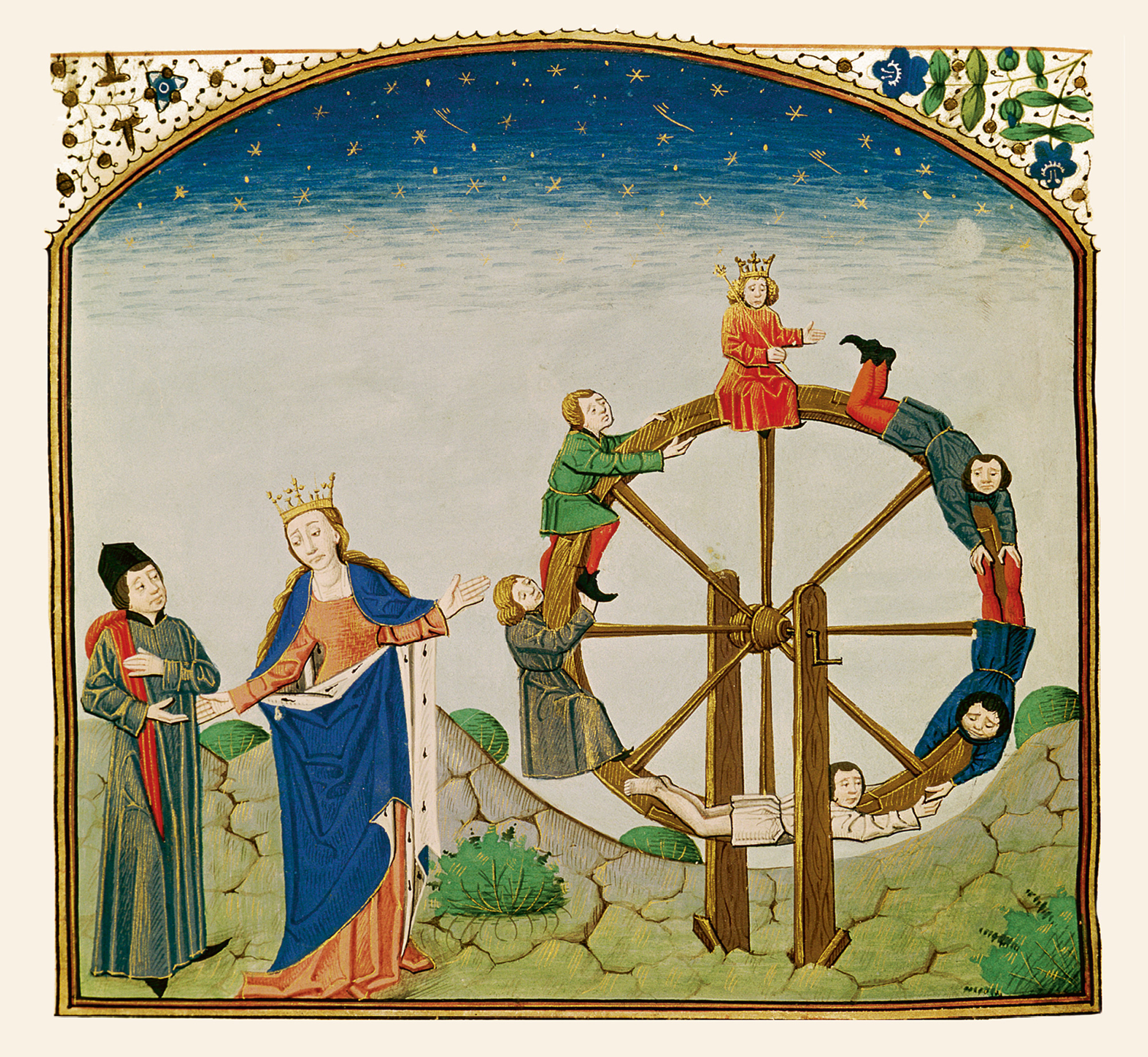Turn, Turn, Turn: An Interview with John V. Fleming
A ride on the wheel of fortune
Jeff Dolven and John V. Fleming

When you ride a wheel, you are usually preserved from its revolution by an axle. Ferris wheels, which lift and lower us to our delight, are one exception. Though less reliably delightful, the wheel of fortune is another. Its history is ancient, back past the wheel of the zodiac, and it has rolled through western history ever since as a figure for the inexorable law governing fortune’s apparent arbitrariness. What goes up, must come down. What comes down, must go up, too, though that is less often taken to be the lesson.
John Fleming has written widely about the literature and culture of the Middle Ages, when the wheel of fortune was arguably at the top of its own career. Jeff Dolven spoke to Fleming at Princeton University, where he was formerly Louis W. Fairchild Class of ’24 Professor of English and Comparative Literature.
Cabinet: We’re here to talk about the wheel of fortune. Boethius didn’t start it rolling, but it has come to be identified with him. Perhaps you could tell us who he was.
John V. Fleming: Indeed, the wheel of fortune is associated with Boethius—oddly perhaps, since he mentions it so briefly in The Consolation of Philosophy. But later medieval writers developed his image extensively. Boethius was born in 480, but it’s his death that is memorialized in the Consolation. He wrote the book in 524 while imprisoned and awaiting execution by order of Emperor Theodoric the Ostrogoth. The circumstances of his political difficulties are not entirely clear, but he probably was accused of conspiring with the Eastern emperor against Theodoric, which he might, in fact, have been doing. He came from a prominent senatorial family, which perhaps even produced a couple of the later emperors. His full name is Anicius Manlius Severinus Boethius and in medieval texts he’s often called Severinus or Severine. His family had been Christians for more than a century at the time of his birth. Boethius has been described as the last of the great Roman philosophers and with equal justice as the first great Christian philosopher.
So how does he come to write the Consolation? And why is it philosophy he turns to?
The word philosophy in the title is crucial. In the early sixth century, you would expect a Christian author to look for solace, or consolation, in religion, but The Consolation of Philosophy is religion-free. Boethius did his absolute utmost to draw all the materials of the book not from the Bible or theologians like Augustine but rather from the classical secular literature that any well-educated citizen of late antiquity would have known—what we think of as the Greek and Latin classics.